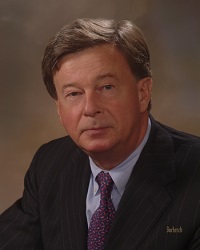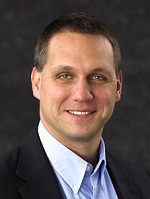Two years after leaving the biotech giant Genzyme, Henri Termeer has found increased demand for his expertise and personal resources from a growing crowd of startups in the Boston area and The Netherlands.
 |
| Henri Termeer |
Termeer, the former chairman and CEO of Genzyme, left the biotech two months after Sanofi ($SNY) acquired it for more than $20 billion in April 2011 to seize control of its lucrative drugs for rare diseases. He was expected to stay involved in biotech, having engineered the growth of Genzyme from a small venture in the early 1980s to a multibillion-dollar force in the industry. Yet not even he could have predicted all the new companies and entrepreneurs he would add to his professional circle.
He walked away from Genzyme with at least $158.4 million in stock and severance payouts. And he invests his own money in startups. But things have changed.
He is operating without the war chest of Genzyme, which could afford to write fat checks of $100 million or more to explore new treatments without fretting the potential for failure, as was the case in the company's jettisoned collaboration with PTC Therapeutics to test a compound for Duchenne muscular dystrophy.
"In a company, of course, you have resources and you can pull together, depending on how you prioritize it, resources around a particular idea. And you have some level of pull on that," Termeer told FierceBiotech in an interview. "When you're on the outside, you're dependent on many other people that would help you in a much more fragmented way. I find those [companies] extremely exciting."
Last month Termeer joined the board of the standout startup Moderna Therapeutics, which has found intense pharma and investor interest in the use of synthetic messenger RNA molecules for coaxing normal cells in the body to churn out protein drugs to combat diseases. Cambridge, MA-based Moderna offers a way of producing and developing therapeutics without expensive cell-based processes.
"I was attracted to that notion that felt very much like the Genzyme feel many years ago," said Termeer, who was raised in The Netherlands and has an accent to prove it.
Unlike some other startups Termeer is advising, Moderna is flush with cash from a widely publicized pact announced in March with AstraZeneca ($AZN), which handed the small biotech outfit $240 million in cash up front and other perks in return for rights to as many as 40 drugs in the cardio-metabolic and oncology fields. Internally, Moderna plans to research its messenger RNA therapies for rare diseases and cancer.
"It is just in that phase of trying to define its identity and what it is going to develop all the way by itself," Termeer said of Moderna. "That is a fantastic moment because with that you shape what the future will look like."
Termeer counsels startups to resist the temptation of giving up ownership of key assets to deep-pocketed pharma companies, he said, and he advises companies to prioritize early on which assets to guard for internal research and which ones to keep for revenue-generating partnerships.
"Unless you do that up front," Termeer said, "you will be seduced by the moment where someone comes to you and says, 'We'll pay you a lot for that asset.'"
With his new role at Moderna, Termeer has formal adviser or director roles at no fewer than 9 life sciences outfits and biotech startups. On top of those duties, he serves on more than a half-dozen other boards for groups such as the Biotechnology Industry Organization (BIO), the Leadership Council of the Massachusetts Life Sciences Collaborative and Project HOPE.
"I'm not bored in any way," Termeer said. "I'm busier than ever, and it's a privilege to work in this space."
Termeer gives different types of support to companies based on their needs. At Aveo Oncology ($AVEO), where Termeer serves as chairman, the company faces a potential denial of its application for approval of the kidney cancer drug tivozanib from the FDA, after the agency's advisory panel voted 13-1 against endorsing the company's bid last week. This leaves the company to consider the future of its lead asset and best shot at product sales revenue.
"You can imagine that the company is thinking through what all this means," Termeer said. "At this point it is too early to comment."
For other biotech outfits, Termeer has gotten involved at the assembly stage. Last year he became an adviser and early investor in Leiden, Netherlands-based ProQR Therapeutics, a newly hatched startup focused on RNA correction technology for treating the inherited lung disease called cystic fibrosis.
Termeer has a similar investor-mentor role at Boston-based Lysosomal Therapeutics, a sapling startup interested in treating Parkinson's disease and other neurodegenerative disorders. And he has mentored leaders of young companies such as Cambridge-based OvaScience ($OVAS), a developer of female infertility products.
 |
| Dr. Michelle Dipp, CEO of OvaScience |
"His focus on patients and on building a culture that shares this vision is a hallmark of his success," OvaScience's first-time CEO, Michelle Dipp, told FierceBiotech. "His advice to me for OvaScience was to make the culture an integral part of the company as it grows."
Termeer also serves as an adviser to the Longwood Fund, where Dipp and former Sirtris CEO Christoph Westphal are partners. Genzyme invested in Longwood toward the end of Termeer's reign and in Sirtris years earlier. Westphal recruited Termeer to the board of Longwood-backed Verastem ($VSTM), a Cambridge, MA-based developer of drugs against cancer stem cells. "Henri is a giant in the industry," Westphal said via email.
Back in the hunt for the first Duchenne drug
Termeer, 67, likes to work with companies in the Boston area and The Netherlands, where he travels regularly to visit family.
Last year the Dutch biotech group Prosensa landed Termeer as a strategic adviser as the company works with GlaxoSmithKline ($GSK) on Phase III development on an RNA treatment for Duchenne muscular dystrophy, a rare muscle-wasting disorder that attacks boys in childhood and leads to premature death. There are no approved drugs to treat the cause of the disease.
 |
| Christoph Westphal |
The Prosensa/GSK program is in a closely watched race with Sarepta Therapeutics's ($SRPT) similar drug for the same patient population. Sarepta, based in Cambridge, has indicated that the company would seek an early FDA approval for its contender eteplirsen based on impressive efficacy data from a 12-patient Phase II study.
"This is a pivotal moment for this disease, so we have to do it right," Termeer said. "And I like the Prosensa approach in that regard. They are doing it right. GSK is insisting as well that we end up with something that stands up to the test of a review."
Later in 2013, Glaxo expects to report data from the Phase III study of the company and Prosensa's DMD contender drisapersen.
Embracing new funding models for rare diseases
Termeer has taken stock of the growing menu of nontraditional sources of financing for funding drug research in specialty areas such as cystic fibrosis and muscular dystrophy. Termeer, who raised massive sums from Wall Street for Genzyme, has added terms such as "crowd-funding" to his vocabulary.
Under Termeer, Genzyme worked closely on a DHA-based therapy with the Cystic Fibrosis Foundation, which pioneered the venture philanthropy model for funding biotech companies' research of therapies for neglected diseases. In the age of social media, he believes there are even more opportunities for drug developers to gain funding from such groups and the families of patients to advance research.
"I think the thing to look for is the increasing possibilities for the patients, patient organizations, and patients directly by themselves to become engaged in funding things," he said.
"The way technology allows people to communicate creates opportunities that I think will allow broadly mentioned crowd-funding to become a reality in a highly specific way."
"If I have a disease that has 1,000 patients in this country, and of course many rare diseases are in that category, it's unfundable through traditional mechanisms except for the NIH," he said. "You can go to the families of the patients and create an environment where there's a significant financing opportunity."
Clearing obstacles to cement a legacy
At Genzyme, Termeer helped usher in the era of rare disease R&D in biopharma with pricy enzyme-replacement therapies. Genzyme makes Cerezyme, for instance, which treats an inherited disorder called Gaucher disease, found in a mere one in 20,000 live births. The drug costs hundreds of thousands per patient, and Genzyme has raked in billions of dollars selling the enzyme therapy.
Yet there are challenges to making the complex molecules in such drugs. Genzyme relies on living mammalian cells to produce the therapies. A rare virus cropped up in a bioreactor used to make Cerezyme at an Allston, MA, facility in 2009, leading to shortages of the product after production was halted and a $175 million penalty from the FDA.
Termeer was widely criticized for the manufacturing snafus in Allston. Still, the setbacks failed to overshadow his legacy in the industry for advancing research and commercialization of rare-disease drugs.
His record over the past two years shows that he has more to offer in the industry. And while he fought to keep Genzyme independent from Sanofi before agreeing to terms of the sale of the company, he has embraced his freedom and the opportunity to get involved in many startups as a result of his departure from Genzyme.
"There's so much happening, there's so many great ideas," Termeer said. "It seems to me that the level of technology and the understanding of how to apply it has really grown in an important way." -- Ryan McBride (email | Twitter)